- Home
- F. Paul Wilson
Fear City
Fear City Read online
The author and publisher have provided this e-book to you without Digital Rights Management software (DRM) applied so that you can enjoy reading it on your personal devices. This e-book is for your personal use only. You may not print or post this e-book, or make this e-book publicly available in any way. You may not copy, reproduce, or upload this e-book, other than to read it on one of your personal devices.
Copyright infringement is against the law. If you believe the copy of this e-book you are reading infringes on the author’s copyright, please notify the publisher at: us.macmillanusa.com/piracy.
ACKNOWLEDGMENTS
Thanks to the usual crew for their efforts: my wife, Mary; David Hartwell, Marco Palmieri, and Becky Maines at the publisher; Steven Spruill, Elizabeth Monteleone, Marc Buhmann, Dannielle Romeo; and my agent, Albert Zuckerman.
Once again, Surviving the Mob: A Street Soldier’s Life Inside the Gambino Crime Family by Dennis N. Griffin and Andrew DiDonato offered valuable insights into Mob life in the 1990s.
Special thanks to Jim Dwyer, David Kocieniewski, Deidre Murphy, and Peg Tyre for writing Two Seconds Under the World, an invaluable resource regarding the 1993 World Trade Center bombing.
AUTHOR’S NOTE
Fear City will be the last Repairman Jack novel for a while … maybe forever.
After sixteen novels (counting Nightworld) in the main sequence plus three juveniles and three prequels, Jack needs a rest. With his return in 1998, he took over my writing career. I don’t regret it. We’ve had a great run and I loved every minute of it. But his tale was never intended as an open-ended series. We had a destination—Nightworld—and we reached it. Now I’m going to go back to my genre-hopping ways, and will be plugging new work into the Secret History when appropriate.
I’m not saying I will never write another Repairman Jack novel. If an idea pops up that’s perfect for our guy, I won’t hesitate to write that book. But the routine of a new Repairman Jack novel every fall is over.
See you again soon, I hope. I’ve got some surprises for you.
—F. Paul Wilson,
the Jersey Shore
CONTENTS
Title Page
Copyright Notice
Acknowledgments
Author’s Note
Tuesday, February 16, 1993
Chapter 1
Chapter 2
Chapter 3
Chapter 4
Chapter 5
Chapter 6
Chapter 7
Chapter 8
Chapter 9
Wednesday
Chapter 1
Chapter 2
Chapter 3
Chapter 4
Chapter 5
Chapter 6
Chapter 7
Chapter 8
Chapter 9
Thursday
Chapter 1
Chapter 2
Chapter 3
Chapter 4
Chapter 5
Chapter 6
Chapter 7
Friday
Chapter 1
Chapter 2
Chapter 3
Chapter 4
Chapter 5
Chapter 6
Saturday
Chapter 1
Chapter 2
Chapter 3
Chapter 4
Chapter 5
Chapter 6
Chapter 7
Chapter 8
Chapter 9
Chapter 10
Chapter 11
Chapter 12
Sunday
Chapter 1
Chapter 2
Chapter 3
Chapter 4
Chapter 5
Chapter 6
Chapter 7
Chapter 8
Monday
Chapter 1
Chapter 2
Chapter 3
Chapter 4
Chapter 5
Chapter 6
Chapter 7
Chapter 8
Chapter 9
Chapter 10
Chapter 11
Chapter 12
Chapter 13
Chapter 14
Chapter 15
Chapter 16
Tuesday
Chapter 1
Chapter 2
Chapter 3
Chapter 4
Chapter 5
Chapter 6
Chapter 7
Chapter 8
Chapter 9
Chapter 10
Wednesday
Chapter 1
Chapter 2
Chapter 3
Chapter 4
Chapter 5
Chapter 6
Chapter 7
Chapter 8
Chapter 9
Chapter 10
Chapter 11
Chapter 12
Chapter 13
Chapter 14
Chapter 15
Chapter 16
Chapter 17
Chapter 18
Thursday
Chapter 1
Chapter 2
Chapter 3
Chapter 4
Chapter 5
Chapter 6
Chapter 7
Chapter 8
Chapter 9
Chapter 10
Chapter 11
Chapter 12
Chapter 13
Chapter 14
Chapter 15
Chapter 16
Chapter 17
Chapter 18
Friday, February 26, 1993
Chapter 1
Chapter 2
Chapter 3
Chapter 4
Chapter 5
Chapter 6
Chapter 7
Chapter 8
Chapter 9
Chapter 10
Chapter 11
Chapter 12
Saturday
Chapter 1
Chapter 2
Chapter 3
Sunday
Chapter 1
Chapter 2
Afterword
The Secret History of the World
Also by F. Paul Wilson
About the Author
Copyright
TUESDAY
FEBRUARY 16, 1993
1
“Is this the Shadow?” Jack said, holding up the cellophane envelope. “I mean, the Shadow?”
The sixtyish guy behind the counter—lank hair, three-day stubble, ratty brown cardigan—looked annoyed as he brought it close to his smeared glasses and squinted at the label. Jack wondered how he saw anything through them.
“If it says ‘genuine glow in the dark Shadow ring,’ which it does, then that’s what it is.”
Attracted by the BACK-DATE MAGAZINES sign, Jack had wandered into this narrow, coffin-sized store off Times Square. The place seemed to specialize in Life magazine and had moldy issues piled to the ceiling. Jack had been curious to see if the place stocked any old pulps. It did, but only a few, and those had disconcerting titles like Ranch Romances and Fifteen Love Stories. None of the Black Mask types he was hunting for. But tucked in among the yellowed, flaking issues he’d found the ring.
The white plastic body was shaped like the Shadow on each side—Jack could even make out a .45 Colt semiauto in one hand—but the stone set in the top was bright blue and shaped like Gibraltar.
“But this looks nothing like the Shadow’s girasol ring.”
The guy stared at him. “Do you even know what a girasol is?”
“Fire opal.”
This seemed to take him by surprise. “Okay. Point for you. What are you—eighteen?”
Jack didn’t react. He got this all the time. “You’re half a dozen short.”
“Coulda fooled me. But still a kid. How does a twenty-four-year-old like you know about the Shadow’s g
irasol ring?”
“Read a few old issues.”
“That’s the pulp Shadow. The character started on radio, sponsored by a company called Blue Coal. That blue plastic ‘stone’ there is supposed to be a chunk of blue coal.”
Jack was thinking it was just about the neatest thing he’d seen in a long time.
“And it glows in the dark too?”
“That’s what it says. Never tested it.”
“How much?”
“Twenty bucks.”
“What?”
“That’ll be a bargain next year after the movie comes out.”
“What movie?”
“The Shadow. Gonna star Alec Baldwin, I hear.”
Jack remembered him from The Hunt for Red October. Yeah, he had the look for the Lamont Cranston part.
“So if I’m tired of it next year you’ll buy it back for more?”
“Can’t promise that. Can’t even promise I’ll be here, what with Disney moving in.”
News to Jack.
“Disney? Here?”
“Word is they’re negotiating a ninety-nine-year lease on the Amsterdam.”
“Donald Duck on the Deuce? No way.”
“Everybody’s scared shitless because it’ll be proof that the Times Square cleanup every mayor since LaGuardia’s been talking about is gonna happen, and you know what that means.”
Jack pushed aside a vision of Minnie Mouse in hot pants saying, “Hiya, sailor.”
“What?”
“Rents through the roof. Guys like me forced out, moving over to Hell’s Kitchen or farther downtown or just closing up and walking away.”
“Oh, no! Where will people go for their copies of Ranch Romances?”
His eyes narrowed behind the grimy lenses. “You a wiseass?”
Jack could see the guy was genuinely worried. He thought about boxing up and moving all those copies of Life and regretted the remark.
“Sometimes the mouth runs ahead of the brain.”
“People get in trouble that way.”
“Tell me about it.”
He forked over a Jackson. The guy slipped it into his pocket and didn’t ask for sales tax. Fine.
Jack walked out with his treasure and slipped it onto his pinky finger. He ambled east toward Times Square, thinking not of the Shadow but of Disney instead.
What he remembered most about Disney World from the couple of times his folks had taken him there during the seventies was how clean it had been. Could that happen here? Times Square was anything but clean, and 42nd Street even less so. But grime and kitsch and porn and fringe people were part of the ambience. Take that away and replace it with a bunch of high-end chain stores and what did you have? You had a freaking mall. Might as well move back to Jersey.
As he crossed Duffy Square and headed up Seventh Avenue, he realized the writing had been on the wall for a couple of years now, ever since the state started buying up properties along the Deuce, especially the old theaters.
Plus ça change…?
Jack doubted it.
If the magazine guy was right about the Amsterdam, then change was sure as hell coming and, as far as Jack was concerned, not for the better. Well, better if you were a landlord, but no way for a small businessman. Things would not, as the saying went, stay the same. All the quirky little stores and all the quirky people who frequented them and all the quirky people who ran them were going to go the way of the Neanderthals.
His growing dark mood about the end of an era was blown away by the sight of a familiar face trying to hail a cab across the street from the Winter Garden. She was talking on a mobile phone as she waved her arm.
“Cristin?”
She turned and, for an instant, looked not-so-pleasantly surprised. Then she smiled. “Jack! How nice to see you!”
They shared a quick, slightly awkward hug.
He pointed to her phone—one of the new smaller versions. Unlike the older brick-size models with the big antenna, these could fit in a pocket. He noticed NOKIA under the oblong screen.
“Up with the latest technology, I see.”
“I looove this thing! It’s made my life so easy. No more looking for a pay phone.”
He gave her a lopsided grin and cocked his head toward the Winter Garden marquee. “Going to see Cats?”
“Not likely.”
Their fling thing had lasted two years and during that whole period the only time they’d been to a theater was to see Penn & Teller. Cristin had ended it. She hadn’t called it quits, per se, more like weaned them off each other. They used to get together every Sunday—every single Sunday—but last fall she’d started begging off with increasingly lame excuses until Jack got the message.
She may have engineered the actual parting, but Jack had been the reason. They’d gone into the relationship with the understanding that they’d get together one day a week and be friends with benefits, nothing more. Cristin had been very strict about not wanting strings and Jack had been all for it. At least at first. Along the way he became attached and started wanting more. But Cristin wasn’t looking for more. She liked things just the way they were and wouldn’t bend.
Jack had suffered through the process of attenuation, but after clearing the air at an official breakup lunch between Christmas and New Year’s, they’d parted friends.
Seeing Cristin again for the first time in weeks made him realize he was still carrying a torch for her.
“You’ve let your hair grow,” he said.
“A little.”
She had a roundish face, dark hair, blue eyes, and a bright smile that always made him want to smile too. She wore her fur-lined raincoat.
“Can I see?”
“What?”
“The ama-gi.”
“You still getting off on that?”
“I don’t know about getting off…”
She rolled her eyes, did a quick turn, and lifted her hair. She had one tattoo and it decorated her nape: a Sumerian symbol known as ama-gi.
He caught the briefest glimpse, and then she dropped her hair.
“I was heading for a late lunch…” he began.
“Oh, I’d love to, Jack, but I’ve got to get down to FIT. I have a class.”
Years ago she’d dropped out of the Fashion Institute to work full time for an event planning operation called Celebrations. The job kept her hopping all over the city, but she still wanted her degree and took one course a semester to keep herself moving toward it.
“Tomorrow then? Or Thursday?”
He hoped he didn’t sound desperate. He didn’t feel desperate … he simply wanted to spend a little time with her.
She gave him a long look. “Just lunch?”
“Two old friends from high school sharing food and small talk.”
She smiled. “That sounds great. Dutch, right?”
“Of course.”
She’d always insisted on paying her share and, since Jack wasn’t exactly flush these days, that was a good thing. Cristin, on the other hand, made excellent money planning events.
But where to eat?
Apparently she already had an idea. “I found a cool little French place on East Sixty-first called Le Pistou.”
Jack made a face. “Really? What’s choice number two?”
“But you like French.”
“I do.” He could eat just about anything, even snails. “But I don’t know if I could eat at a place called Piss Stew.”
“It’s vegetable soup.”
He held up his hands. “Stop. You’re only making it worse.”
“You’ll never change,” she said through a laugh. “Thursday’s good. Meet there noonish?”
“Deal.”
He hailed her a cab and one pulled over right away.
“But just for lunch,” she said as he held the door for her.
“Of course. We broke up, remember?”
“I do. But you don’t know why.”
That took him by surprise. “I thought it was
because I was getting too attached.”
“No. I was.”
She gave him a quick kiss on the cheek then slipped into the cab. He shook his head as he watched it weave down Seventh.
Cristin, Cristin, Cristin …
Despite her paranoia about strings, she seemed happy with where she was in her life. He didn’t know anybody else like that. That didn’t mean she was going to stay put. He knew she was three years into a five-year plan that involved socking away every extra cent for now and eventually opening her own boutique to sell her original designs.
She was also happy with who she was. Jack wondered what that felt like.
He’d read something from Wilde last year and his brain had attached it to Cristin: Most people are other people. Their thoughts are someone else’s opinions, their lives a mimicry, their passions a quotation. Not because Wilde had been describing Cristin, but because it was so not Cristin. He didn’t know anyone who thought like Cristin. She danced to her own tune and to hell with what everyone else was playing.
He missed her.
When her cab disappeared into the traffic crush he turned and continued his uptown ramble.
Okay, the week was looking better, even if it involved a French restaurant in the East Sixties. How bad could lunch be? Twenty bucks apiece? Thirty?
Yeah, his resources had dwindled. Perhaps he’d been too generous in his flush days. He didn’t regret it, though. He lived a simple life. His two major expenses were rents: on his apartment and on the garage space for Ralph. Other than that, he lived on junk food and beer.
His fix-it business hadn’t exactly taken off. He collected a fee now and again, but the jobs were sporadic. Nothing he could count on. So he’d been supplementing his income as a waiter in a hole-in-the-wall West Village trattoria that paid him under the table. Perhaps “paid” was a euphemism—a teeny fraction of minimum wage—but the tips were good. Everybody had heard Dylan’s “Positively 4th Street” and all the tourists flocked to West 4th when they visited the Village. Trattoria Villagio waited there to provide drinks and light fare when they took a break from prowling the specialty shops.
He checked his watch. Lots of time to kill before meeting a prospective customer at Julio’s. Maybe he’d grab a Whopper and train over to Brooklyn to check on an investment.
2
The frigid February wind off the Hudson cut through Kadir Allawi’s fatigue jacket. He stood on the dock by the Central Railroad Terminal with Mahmoud, Kasi, Salameh, and Yousef. Jersey City sprawled behind them, Ellis Island sat off to the right, but their attention was riveted across the river on the twin towers of the World Trade Center.

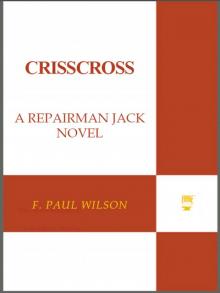 Crisscross
Crisscross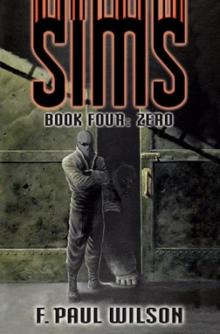 Ground Zero
Ground Zero Short Stories
Short Stories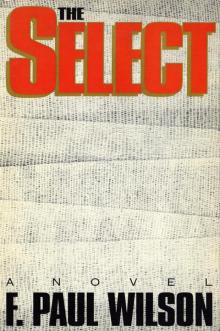 The Select
The Select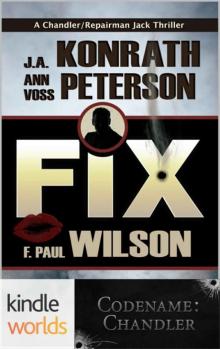 Codename
Codename Bloodline
Bloodline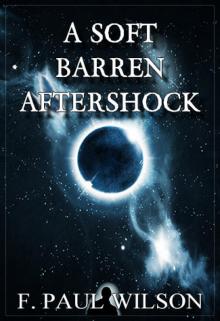 A Soft Barren Aftershock
A Soft Barren Aftershock The Tomb
The Tomb The Complete LaNague
The Complete LaNague The Tery
The Tery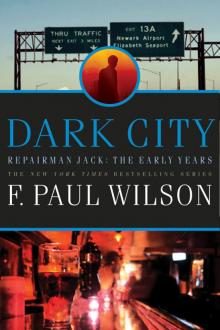 Dark City
Dark City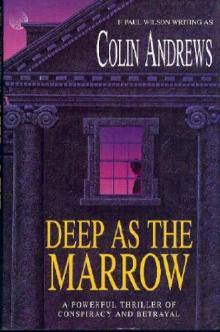 Deep as the Marrow
Deep as the Marrow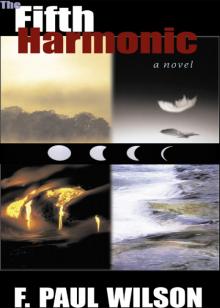 The Fifth Harmonic
The Fifth Harmonic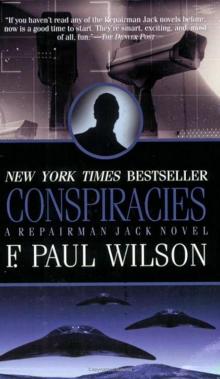 Conspiracies
Conspiracies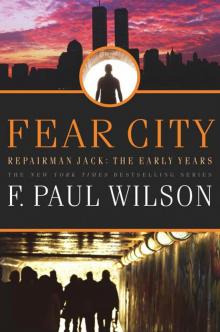 Fear City
Fear City Wheels Within Wheels
Wheels Within Wheels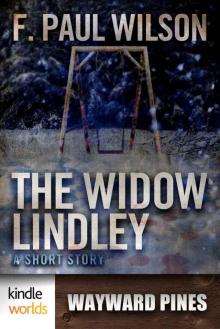 Wayward Pines
Wayward Pines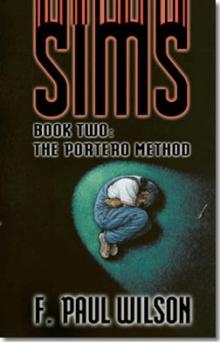 The Portero Method
The Portero Method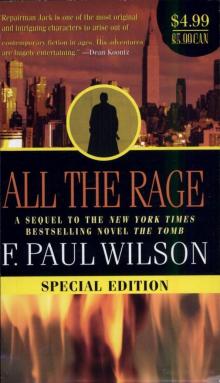 All the Rage
All the Rage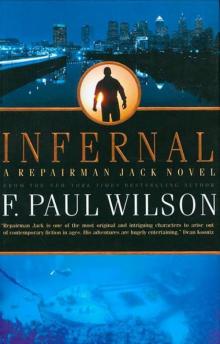 Infernal
Infernal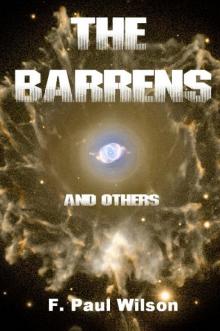 The Barrens & Others
The Barrens & Others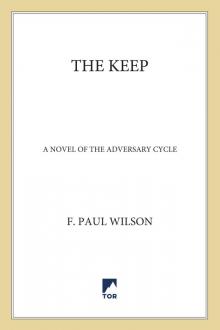 The Keep
The Keep Quick Fixes: Tales of Repairman Jack
Quick Fixes: Tales of Repairman Jack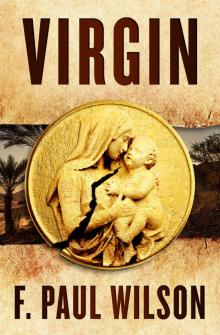 Virgin
Virgin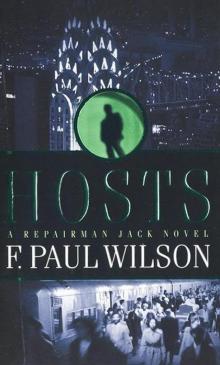 Hosts
Hosts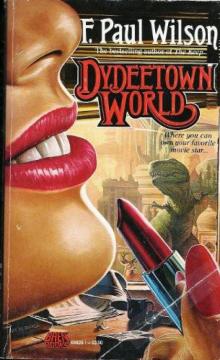 Dydeetown World
Dydeetown World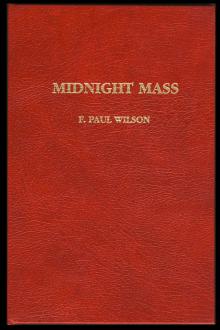 Midnight Mass
Midnight Mass Black Wind
Black Wind The Christmas Thingy
The Christmas Thingy The Last Rakosh
The Last Rakosh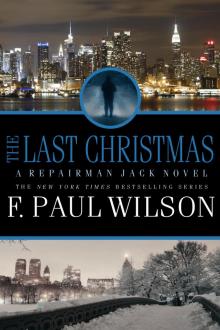 The Last Christmas: A Repairman Jack Novel
The Last Christmas: A Repairman Jack Novel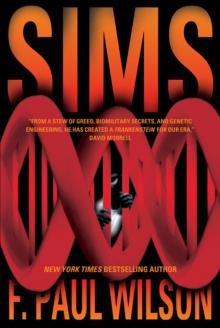 SIMS
SIMS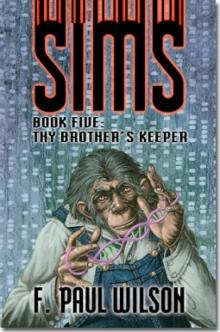 Thy Brother's Keeper
Thy Brother's Keeper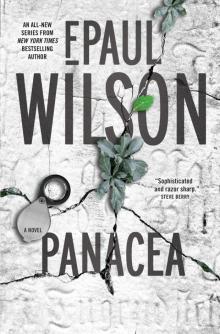 Panacea
Panacea The Touch
The Touch Scenes from the Secret History
Scenes from the Secret History Scenes From the Secret History (The Secret History of the World)
Scenes From the Secret History (The Secret History of the World)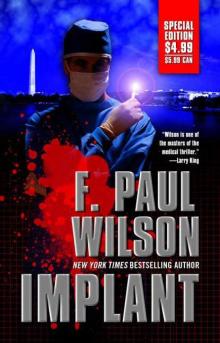 Implant
Implant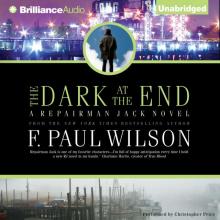 The Dark at the End
The Dark at the End Fatal Error
Fatal Error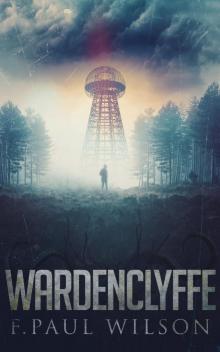 Wardenclyffe
Wardenclyffe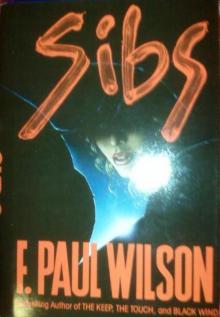 Sibs
Sibs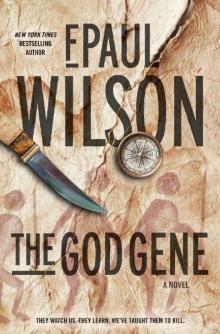 The God Gene
The God Gene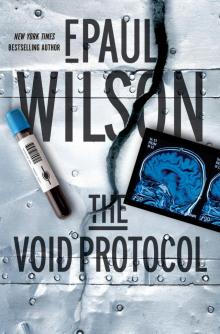 The Void Protocol
The Void Protocol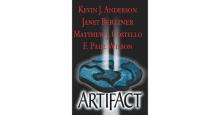 Artifact
Artifact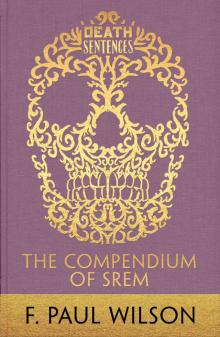 The Compendium of Srem
The Compendium of Srem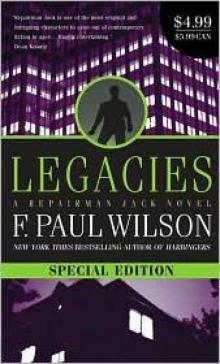 Legacies
Legacies Reprisal
Reprisal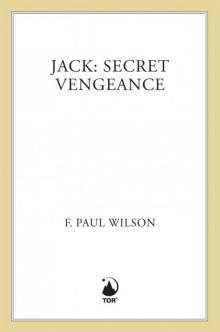 Jack: Secret Vengeance
Jack: Secret Vengeance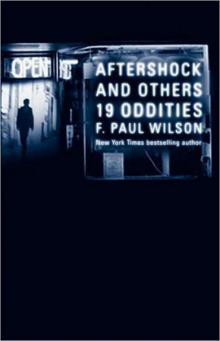 Aftershock & Others: 19 Oddities
Aftershock & Others: 19 Oddities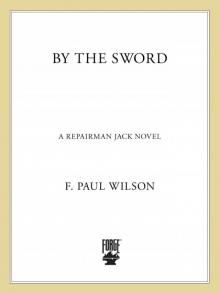 By the Sword
By the Sword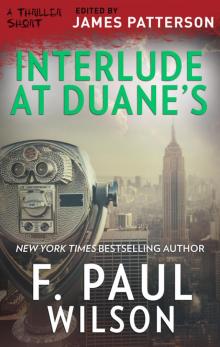 Interlude at Duane's (Thriller: Stories to Keep You Up All Night)
Interlude at Duane's (Thriller: Stories to Keep You Up All Night)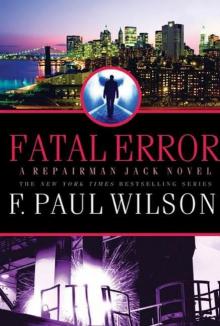 Fatal Error rj-13
Fatal Error rj-13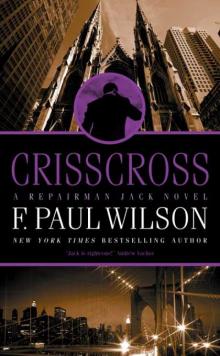 Crisscross rj-8
Crisscross rj-8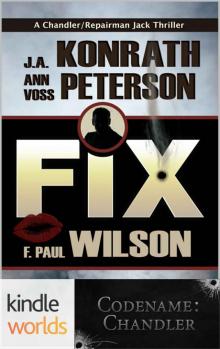 Codename: Chandler: Fix (Kindle Worlds Novella)
Codename: Chandler: Fix (Kindle Worlds Novella)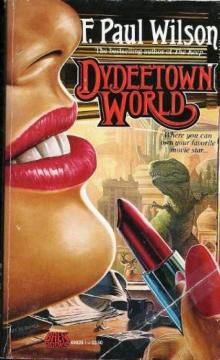 Dydeetown World lf-4
Dydeetown World lf-4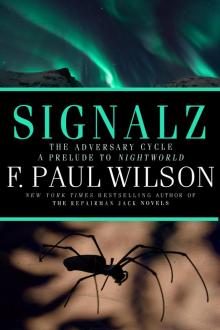 Signalz
Signalz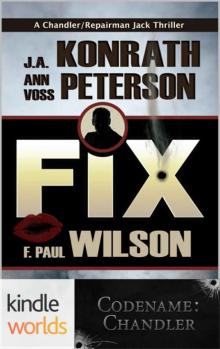 Codename_Chandler_Fix
Codename_Chandler_Fix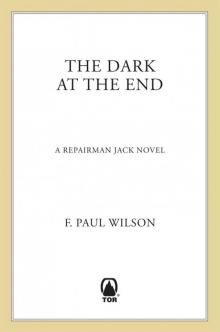 The Dark at the End (Repairman Jack)
The Dark at the End (Repairman Jack)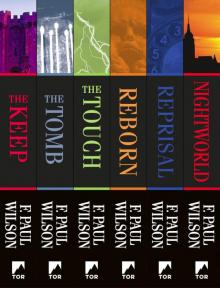 The Complete Adversary Cycle: The Keep, the Tomb, the Touch, Reborn, Reprisal, Nightworld (Adversary Cycle/Repairman Jack)
The Complete Adversary Cycle: The Keep, the Tomb, the Touch, Reborn, Reprisal, Nightworld (Adversary Cycle/Repairman Jack)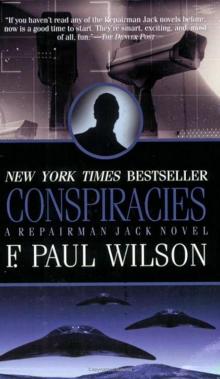 Repairman Jack 03 - Conspiracies
Repairman Jack 03 - Conspiracies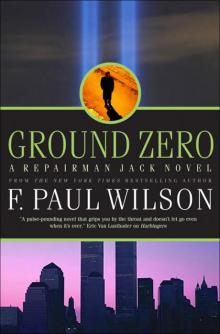 Ground Zero rj-13
Ground Zero rj-13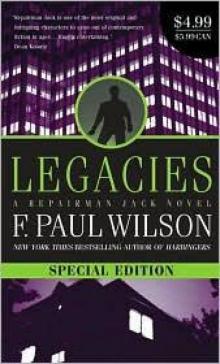 Repairman Jack 02 - Legacies
Repairman Jack 02 - Legacies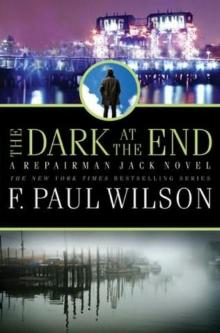 The Dark at the End rj-15
The Dark at the End rj-15![Repairman Jack [02]-Legacies Read online](http://i1.bookreadfree.com/i/03/21/repairman_jack_02-legacies_preview.jpg) Repairman Jack [02]-Legacies
Repairman Jack [02]-Legacies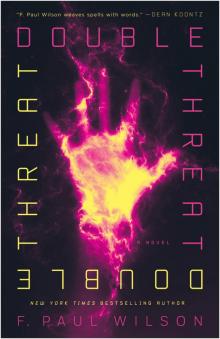 Double Threat
Double Threat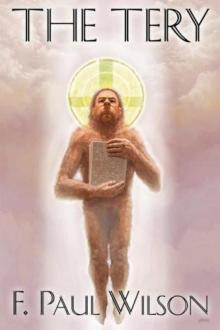 The Tery lf-5
The Tery lf-5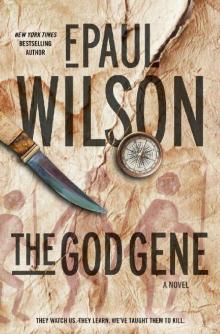 The God Gene: A Novel
The God Gene: A Novel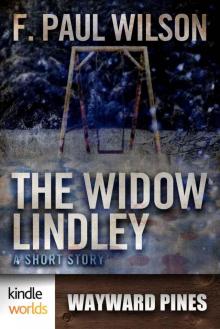 Wayward Pines: The Widow Lindley (Kindle Worlds Novella)
Wayward Pines: The Widow Lindley (Kindle Worlds Novella)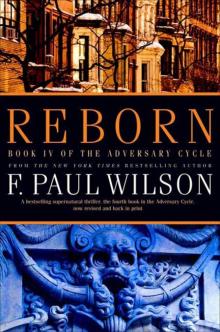 Reborn ac-4
Reborn ac-4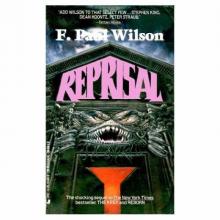 Reprisal ac-5
Reprisal ac-5 New Title 1
New Title 1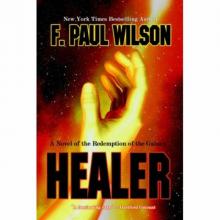 Healer lf-3
Healer lf-3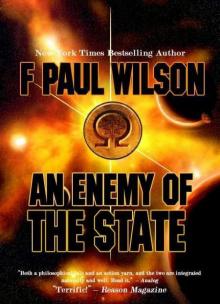 An Enemy of the State lf-1
An Enemy of the State lf-1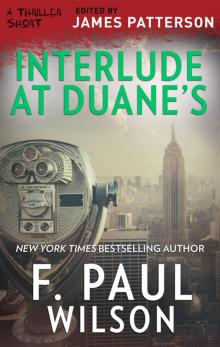 Interlude at Duane's
Interlude at Duane's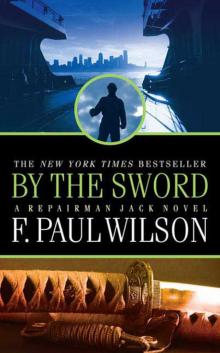 By the Sword rj-12
By the Sword rj-12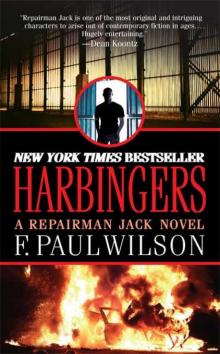 Hardbingers rj-10
Hardbingers rj-10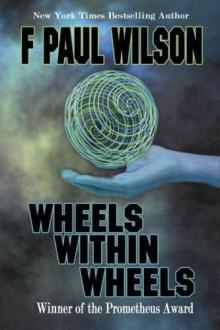 Wheels Within Wheels lf-2
Wheels Within Wheels lf-2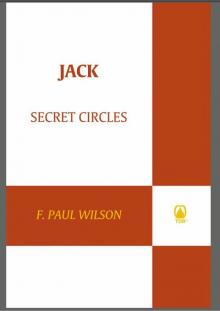 Jack: Secret Circles
Jack: Secret Circles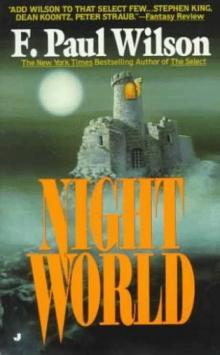 Nightworld ac-6
Nightworld ac-6 Quick Fixes - tales of Repairman Jack
Quick Fixes - tales of Repairman Jack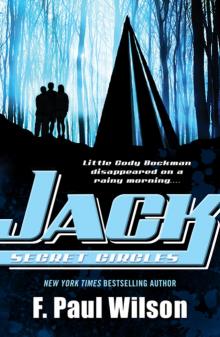 Secret Circles yrj-2
Secret Circles yrj-2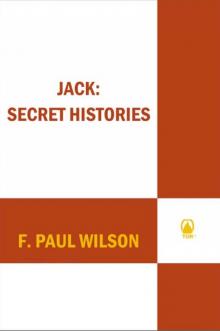 Jack: Secret Histories
Jack: Secret Histories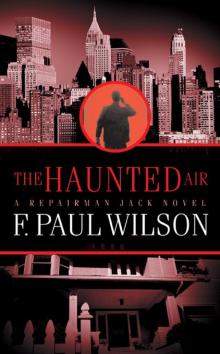 Haunted Air rj-6
Haunted Air rj-6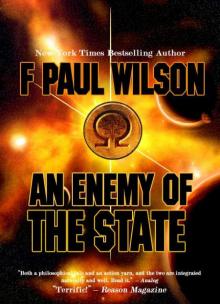 An Enemy of the State - a novel of the LaNague Federation (The LaNague Federation Series)
An Enemy of the State - a novel of the LaNague Federation (The LaNague Federation Series)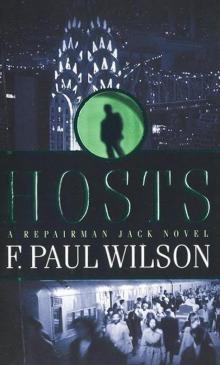 Repairman Jack 05 - Hosts
Repairman Jack 05 - Hosts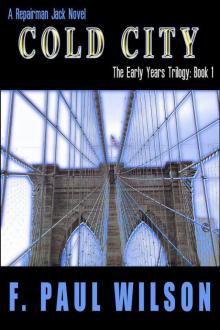 Cold City (Repairman Jack - the Early Years Trilogy)
Cold City (Repairman Jack - the Early Years Trilogy)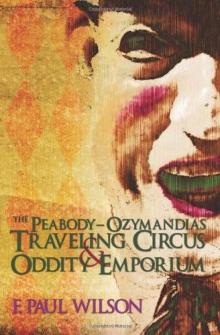 The Peabody-Ozymandias Traveling Circus & Oddity Emporium
The Peabody-Ozymandias Traveling Circus & Oddity Emporium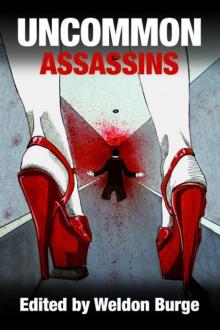 Uncommon Assassins
Uncommon Assassins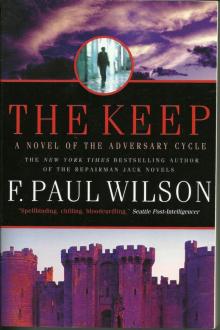 Adversary Cycle 01 - The Keep
Adversary Cycle 01 - The Keep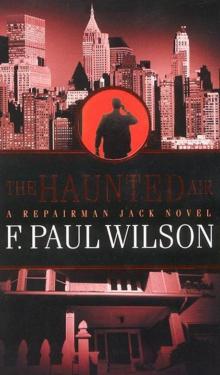 Repairman Jack 06 - The Haunted Air
Repairman Jack 06 - The Haunted Air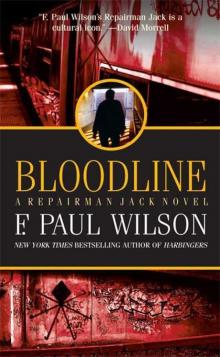 Bloodline rj-11
Bloodline rj-11 Ultimate Supernatural Horror Box Set
Ultimate Supernatural Horror Box Set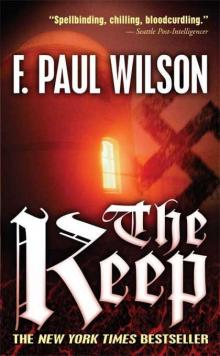 The Keep ac-1
The Keep ac-1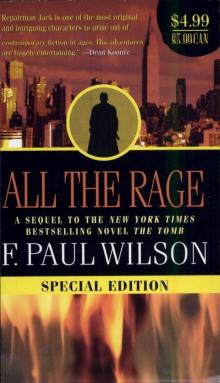 Repairman Jack 04 - All the Rage
Repairman Jack 04 - All the Rage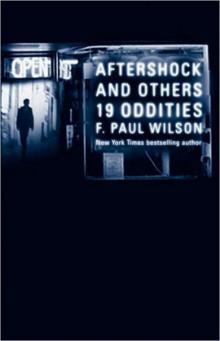 Aftershock & Others
Aftershock & Others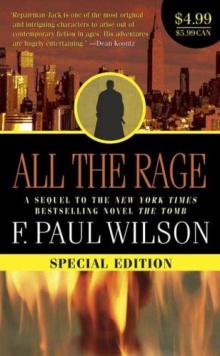 All the Rage rj-4
All the Rage rj-4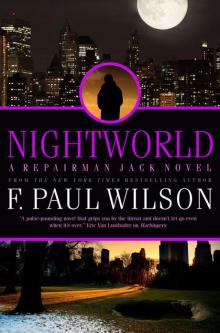 Nightworld (Adversary Cycle/Repairman Jack)
Nightworld (Adversary Cycle/Repairman Jack)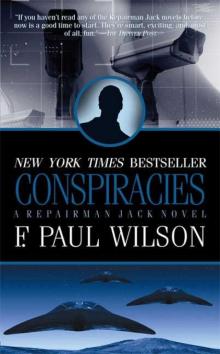 Conspircaies rj-3
Conspircaies rj-3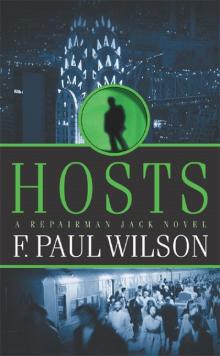 Hosts rj-5
Hosts rj-5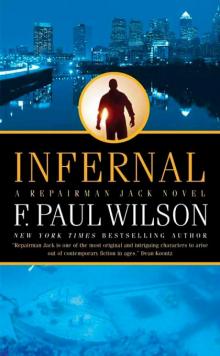 Infernal rj-9
Infernal rj-9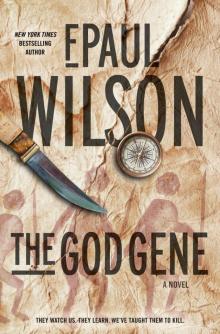 The God Gene: A Novel (The ICE Sequence)
The God Gene: A Novel (The ICE Sequence)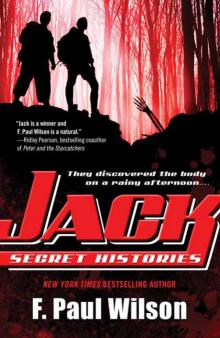 Secret Histories yrj-1
Secret Histories yrj-1